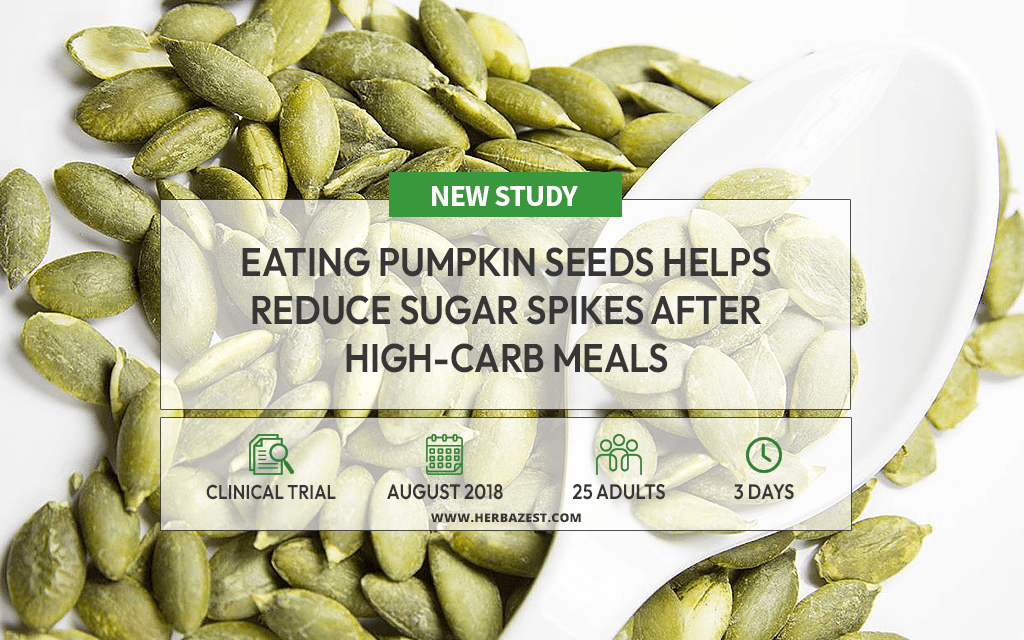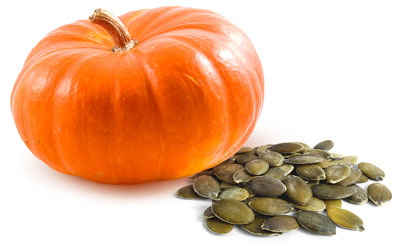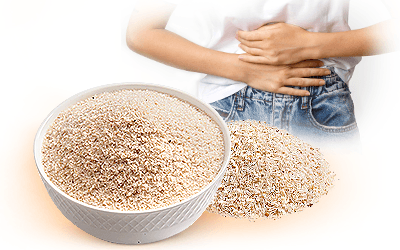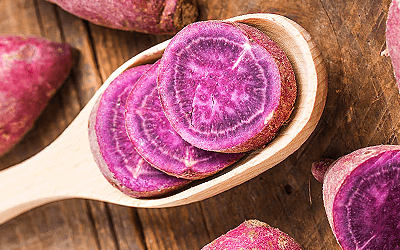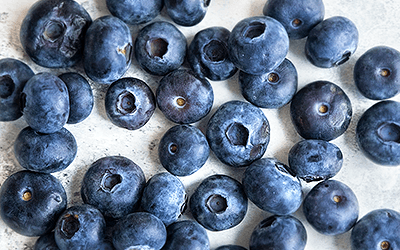Pumpkin seeds, popularly known as pepitas, are a great source of minerals such as iron, zinc, and magnesium, also providing healthy fatty acids omega 3s and 6s as well as high amounts of dietary fiber. Whether they are raw, roasted, or toasted, pepitas are considered a healthy snack in trail mixes and cookies as well as on salads, soups, cereals, or yogurt. Preliminary studies have suggested that pepitas' health benefits may include promoting cardiovascular health and brain function.1,2 The specific use of pepitas for high blood sugar control is virtually unknown. However, a new study has revealed that pumpkin seeds prevent sugar spikes after eating meals high in carbohydrates.
The Study
This randomized, placebo-controlled clinical trial was carried out by a team of scientists at Federal University of Viçosa, Brazil, with the purpose of investigating if pumpkin and flax seeds could improve glucose metabolism, food intake, and cravings after meals in healthy adults with normal metabolic markers.
During three nonconsecutive days, the participants were given three, high-carbohydrate meals with similar nutritional profiles, with or without 65 grams of pooled seeds (either pepitas or flax seeds). In either case, blood glucose levels were analyzed immediately before the meals as well as at intervals of 15, 30, 45, 60, 90, and 120 minutes after ingestion in order to obtain a glycemic curve.
The Results
When compared with the control group that didn't receive any type of seeds, the glycemic responses of the participants that had their meals with pumpkin seeds were significantly lower, registering a blood sugar reduction of about 35% and a higher intake of dietary fiber. On the other hand, the differences in glucose levels between the flax seed group and the control group were not significant. There were no differences in satiety, energy, or nutrient intake in any of the participants.
What Does this Mean?
This clinical trial revealed that pumpkin seeds lower blood sugar levels by delaying the absorption of carbohydrates, markedly reducing sugar spikes after meals. Although these findings need to be corroborated by further studies, their newly discovered hypoglycemic properties make popular pumpkin seeds or pepitas a potential functional food, worthy of being incorporated into a healthy diet.
Other herbs with hypoglycemic properties are chia, lucuma, and yacon.
Sources
- Nutrition Research, Addition of pooled pumpkin seed to mixed meals reduced postprandial glycemia: a randomized placebo-controlled clinical trial, 2018
- University of Alaska Fairbanks, Pumpkin Seeds
Footnotes
- Journal of Medicinal Food. (2012). Antihypertensive and cardioprotective effects of pumpkin seed oil. Retrieved January 9, 2025, from: https://pubmed.ncbi.nlm.nih.gov/22082068/
- Journal of Pharmacy & BioAllied Sciences. (2013). Protective effects of plant seed extracts against amyloid β-induced neurotoxicity in cultured hippocampal neurons. Retrieved January 9, 2025, from: https://pmc.ncbi.nlm.nih.gov/articles/PMC3697193/
